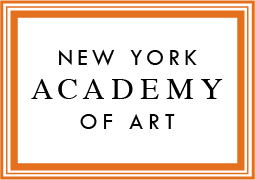Stay Home…if you don’t want an orthopaedic surgeon treating you for pneumonia!
Douglas Unis
Surgeon
Before COVID, I was an orthopaedic surgeon in Manhattan. Tuesdays, Thursdays and Fridays I’d listen to New Yorkers complain about their achy joints. Mondays and Wednesdays, I’d use power tools and titanium to replace them.
I’m a bone carpenter whose ilk has long been ridiculed by “real” doctors.
Q:“What’s the definition of a double blind study?
A:Two orthopods reading an EKG.”
Haha.
When the city was about to get hammered, I bought a fancy stethoscope and my med school posse offered helpful technical advice on which end I should shove up my ass. Relentless ball-breaking got us through school and hasn’t abated since we wore the short white coats decades ago.
Every one of them ran into the fire when their cities, too, were consumed. I’m proud-to-tears of my brothers and sisters in arms, but not even a little bit surprised.
Just before the city locked down, I left my wife and kids with 15 pounds of mac and cheese and 3 cases of toilet paper away from the mercurial virus I’d be tracking into our home. The AirBnB was perched on stilts driven into a sliver of sand pinned between an expanse of protected marshland and an encroaching Delaware Bay. Too soon that house would be washed away by a more insidious natural disaster but, for the time being, it was safe.
It would be almost 3 months until I’d see them again.
I work for a sprawling health system with eight hospitals across NYC but I was deployed to the one where my parents (a doctor and a nurse) met Morningside Heights. It was the place I was born, and where I’d spent the early years of my career building a practice while I started my own family.
It’s as close to home as any place I know but when I arrived for my first 8pm to 8am overnight COVID shift, new stethoscope in hand, it felt more like the Upside Down.
Triage tents and refrigerated tractor trailers shared the street with chefy food trucks donating incongruously lavish dinners. The sidewalks were adorned with chalk messages of gratitude and hope smudged by hundreds of first responders’ boots and stretcher wheels and strewn with used surgical masks and rubber gloves. It was 7:59. Time to go in.
At the peak, the hallways of the emergency room were jammed with terrified people shoulder to shoulder and gasping for air but utterly alone. It was hard to digest it all and maybe I never will.
The New York Times asked healthcare workers to share observations from the front-lines. Here’s what I wrote at 4:54am after my second decadent dinner:
“I’ve seen human tragedy every night that lays bare and raw gaping deficiencies and inequities in our mental health system and social safety net.
I’ve seen florid, untreated schizophrenia with auditory hallucinations on top of COVID. I’ve seen untreated bipolar disorder and homelessness on top of COVID.
I’ve seen a man with advanced dementia and now COVID who was unaware that his wife and sole caregiver lay dead from the virus when EMS arrived at their home.
Last night I saw a COVID positive alcoholic with extensive bruising of unknown etiology, unable to stand up from Wernicke’s encephalopathy, brought in trembling from a crowded SRO.
I hope some good comes of this and we Americans will stop measuring our national success by how much wealth a few individuals can acquire but instead by how well we take care of each other.”
Cautiously, I’ve put my stethoscope back in its box for now. The powers that be say the hospital could lose a billion dollars by the time this is over, even with the FEMA money. They say doctors like me, who perform elective surgeries that keep the lights on, will need to ramp volume back up and fast. But the world is different now. Real people have lost their jobs (and health insurance), they’ve fled the city (maybe never to return) and the disaster tents still blocking the street reveal fears of an impending second wave (I’m afraid, too).
I’m lucky. I haven’t gotten sick. I was issued top notch PPE, washed my hands, covered my eyes and was born white. Over these past few months we have all, not just doctors, been hearing black people saying the words “I can’t breathe”. I hope recent history will prove too powerful for us to turn away from the sickening, underlying truth that’s been there all along. I hope the spirit that brought us to our windows and stoops to sing New York, New York and then into the streets to protest will continue to move us forward. I hope I don’t have to take my stethoscope out of its box again. And I’m hopeful that, in time, all of us, not just some of us, will be able to breathe.
